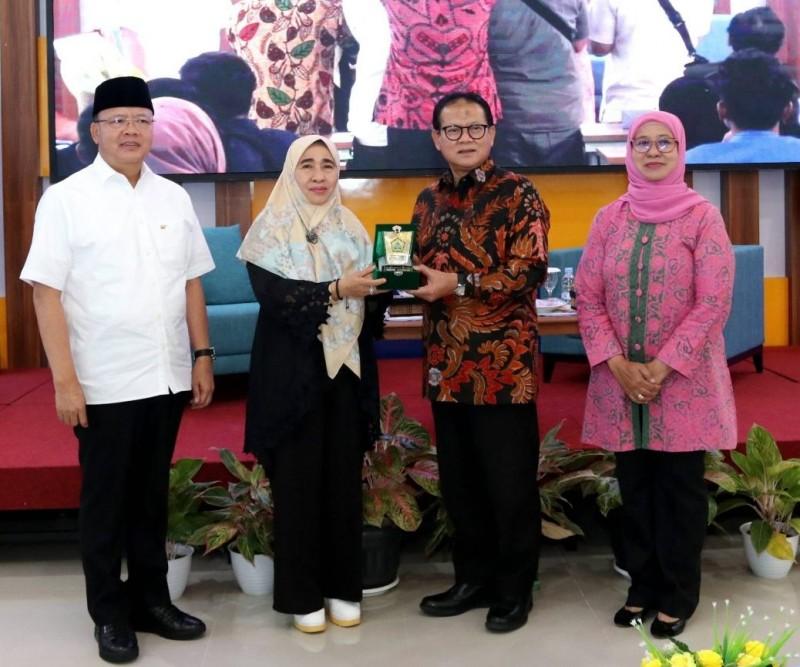
Minister of Maritime Affairs and Fisheries of Indonesia during President Megawati Soekarnoputri’s era delivered a public lecture on Coastal Area Management at the Faculty of Agriculture, University of Bengkulu (Faperta UNIB).
Prof. Dr. Ir. Rokhmin Dahuri, MS, served as the main speaker at a public lecture with the theme “Integrated and Sustainable Management of Coastal Areas and Small Islands in Enggano Island” held at the University of Bengkulu on Wednesday morning, August 23, 2023. During the lecture, the former Minister of Maritime Affairs and Fisheries of the Republic of Indonesia under President Megawati Soekarnoputri also elaborated on the concept of Blue Economy in front of the Governor of Bengkulu, Dr. drh. H. Rohidin Mersyah, MMA, UNIB Rector Dr. Retno Agustina Ekaputri, S.E, M.Sc, Dean of the Faculty of Agriculture at UNIB Prof. Dr. Ir. Dwi Wahyuni Ganefianti, M.S, faculty members, and students from the Marine Science Program.
“Key characteristics of modern economies include the scaling of business units to meet the economy of scale, the implementation of ISCMS (Integrated Supply Chain Management System), the use of cutting-edge technology at every link in the Supply Chain System, and adherence to the principles of sustainable development,” Prof. Rokhmin Dahuri explained. “To advance Enggano Island, we must adopt a large-scale, environmentally friendly, sustainable development model. Therefore, collaboration and synergy among various stakeholders are imperative,” he further emphasized.
According to Prof. Rokhmin, the first step is to draft and align the implementation of the Spatial Plan (Rencana Tata Ruang Wilayah – RTRW) to ensure integration between land and sea. A minimum of 30% of the Enggano Island area should be allocated for protected areas, with the remainder designated for various economic development activities.
Next, efforts should be made to promote the implementation of key economic activities, which can be divided into eight sectors: aquaculture (marine, brackish water, and freshwater); capture fisheries; tourism; agriculture (food crops, horticulture, plantations, and livestock); Industrial Timber Plantations (Hutan Tanaman Industri) and non-timber products (such as honey, resin, etc.); renewable resource-based processing industries; biotechnology industries; and the Indian Ocean Rim Association (IORA) maritime logistics center.
All economic activities (developments) mentioned above should be situated according to land and water suitability, and their development intensity should not exceed the environmental carrying capacity. Furthermore, the total size and turnover of the economy in all development sectors, especially fisheries, should be substantial (following the big-push development model) to address the high-cost economy resulting from remoteness, low accessibility, and connectivity while still staying within the environmental carrying capacity.
The event concluded with the presentation of a plaque from the Dean of the Faculty of Agriculture at UNIB to Prof. Rokhmin Dahuri and the issuance of certificates from the Head of the Marine Science Program at the Faculty of Agriculture, UNIB, as an expression of gratitude to Prof. Rokhmin for taking the time to be the speaker at this public lecture.
Documentation of the live-streamed event can be reviewed on the Faperta UNIB YouTube channel (Click here).






